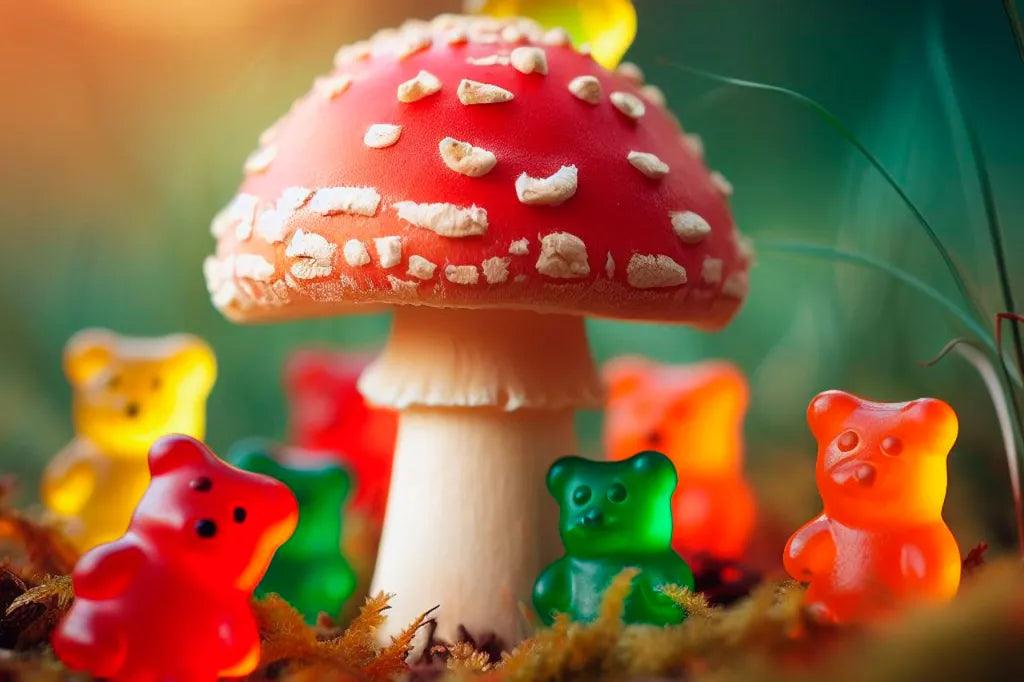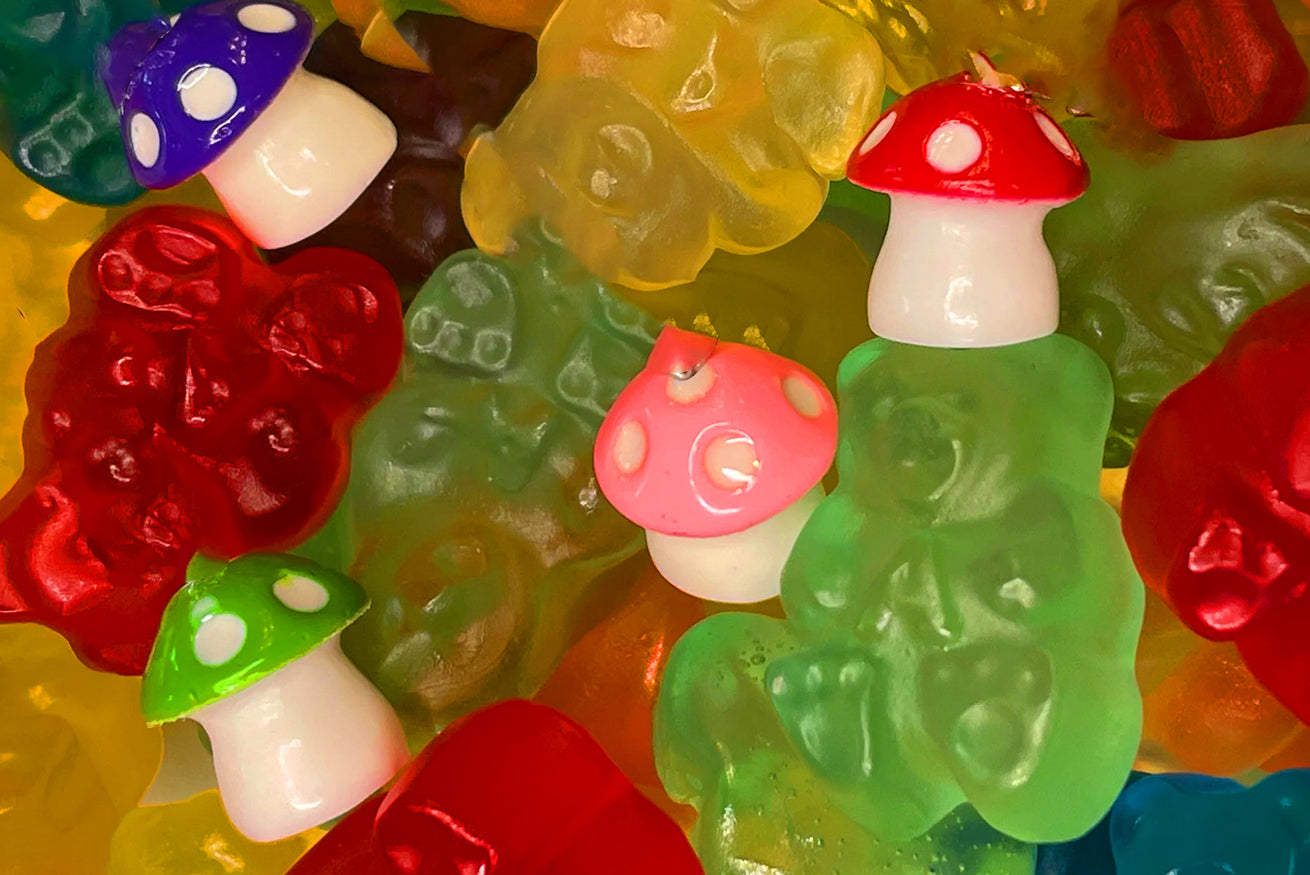Microdosing Psychedelics: What you need to know

Exploring the Benefits and Considerations of Microdosing Mushrooms
In recent years, there has been a growing interest in alternative methods for enhancing mental well-being and cognitive function. One such practice that has gained attention is microdosing mushrooms, particularly non-psilocybin-containing mushrooms. Microdosing involves taking very small, sub-perceptual doses of a psychedelic substance, such as amanita muscaria, on a regular basis. While the concept might seem unconventional, there is a burgeoning body of anecdotal and scientific evidence suggesting potential benefits. In this blog post, we'll delve into the world of microdosing legal mushrooms, exploring its purported advantages, considerations, and the current state of research.
### What is Microdosing?
Microdosing involves consuming a fraction of a standard recreational dose of a psychedelic substance. For mushrooms, this typically means ingesting around 0.1 to 0.3 grams of mushroom extract, an amount that is unlikely to induce hallucinations or significant alterations in perception. Instead, proponents of microdosing claim that it can lead to subtle but noticeable improvements in mood, focus, creativity, and overall well-being.
### Potential Benefits of Microdosing Mushrooms
1. **Enhanced Mood and Creativity**: Many individuals report experiencing improved mood, reduced anxiety, and increased creativity while microdosing. Some users describe feeling more open-minded, imaginative, and able to think outside the box, which can be particularly beneficial for creative endeavors or problem-solving tasks.
2. **Increased Focus and Productivity**: Advocates of microdosing often cite enhanced focus and productivity as key benefits. They claim that microdosing can help individuals stay on task, maintain concentration for longer periods, and accomplish goals more efficiently.
3. **Mindfulness and Emotional Well-being**: Microdosing may also promote mindfulness and emotional well-being by facilitating introspection and emotional processing. Some users report heightened self-awareness, greater emotional resilience, and improved relationships with themselves and others.
4. **Potential Therapeutic Effects**: While more research is needed, preliminary studies suggest that microdosing with psychedelics like psilocybin could have therapeutic potential for conditions such as depression, anxiety, PTSD, and substance abuse disorders. Some users report long-lasting positive effects on their mental health and well-being.
A recent study done at the University of British Columbia observed that people who microdosed psychedelics, reported less anxiety, depression, and stress than non-microdosers.
### Considerations and Precautions
While the anecdotal evidence supporting microdosing is compelling, it's essential to approach this practice with caution and consideration. Here are some key factors to keep in mind:
1. **Legal Status**: Before considering microdosing, it's crucial to be aware of the legal status of psilocybin-containing mushrooms in your jurisdiction. While some regions have decriminalized or legalized the use of these substances, they remain illegal in many parts of the world. It's essential to understand and adhere to relevant laws and regulations.
2. **Individual Variability**: Responses to microdosing can vary widely from person to person. What works well for one individual may not have the same effects for another. It's essential to start with a low dose and carefully observe how your body and mind respond.
3. **Potential Risks**: While microdosing is generally considered safe for most people, it's not without potential risks. Some individuals may experience adverse effects such as increased anxiety, mood instability, or exacerbation of underlying mental health issues. If you have a history of psychiatric disorders or are taking medications, it's advisable to consult with a healthcare professional before microdosing.
4. **Set and Setting**: As with any psychedelic experience, the context in which you microdose can significantly influence the outcome. Creating a safe, comfortable environment and setting positive intentions can enhance the potential benefits of microdosing while minimizing the risk of adverse effects.
### The Current State of Research
While the anecdotal evidence supporting microdosing is compelling, scientific research on the topic is still in its early stages. Most studies have focused on the therapeutic potential of psychedelics rather than microdosing specifically. However, a growing number of researchers are beginning to explore the effects of microdosing on cognition, mood, and well-being.
One study published in the journal *Psychopharmacology* found that microdosing with LSD was associated with improvements in mood, creativity, and mindfulness in a sample of healthy adults. Another study from Imperial College London suggested that microdosing with psychedelics could enhance cognitive flexibility and emotional processing.
### Conclusion
Microdosing mushrooms has emerged as a popular practice among individuals seeking alternative ways to enhance mood, creativity, and well-being. While the scientific evidence is still limited, anecdotal reports and preliminary research suggest that microdosing may offer a range of potential benefits. However, it's essential to approach this practice with caution, considering legal, individual, and safety considerations. As research in this area continues to evolve, we may gain a better understanding of the effects and potential applications of microdosing legal mushrooms.



